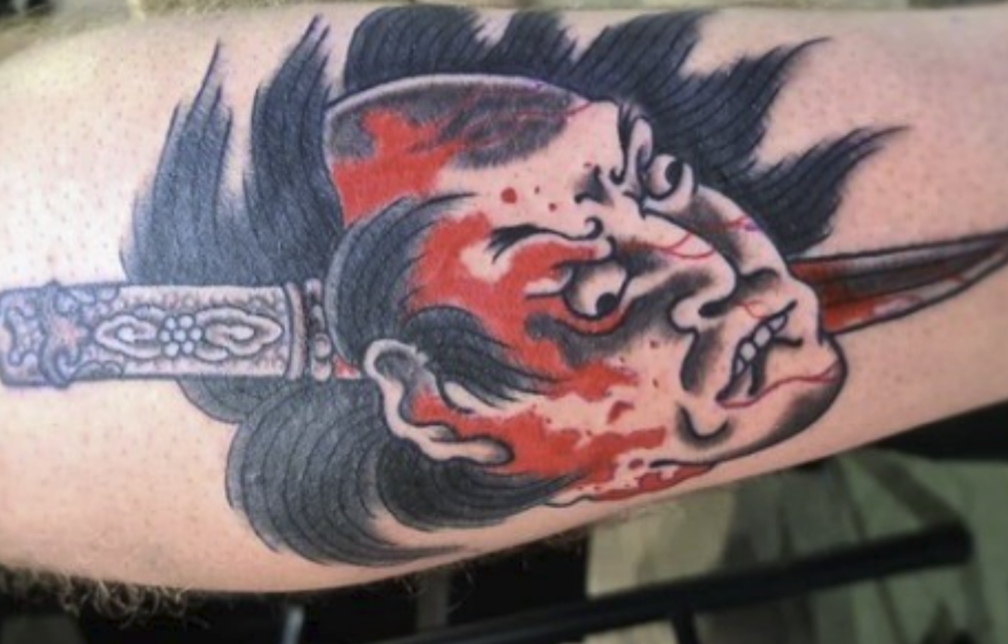
Japanese tattoos, known as irezumi, have a rich and storied history dating back centuries. Rooted in tradition, symbolism, and craftsmanship, these intricate tattoos have captivated people around the world with their striking beauty and profound cultural significance. In this article, we delve into the artistry, symbolism, and evolving cultural perceptions surrounding Japanese tattoos.
A Brief History of Japanese Tattoos
The origins of Japanese tattoos can be traced back to the Jomon period (10,000 BCE - 300 BCE), where evidence of tattooing tools and designs have been discovered on clay figurines. However, it was during the Edo period (1603-1868) that tattooing flourished as an art form and cultural practice. Initially associated with criminality and social outcasts, a Japanese tattoo evolved to become symbols of status, bravery, and spiritual devotion among the samurai and working-class communities.
The Edo period saw the emergence of distinctive tattoo styles, including full-body suits (irezumi) featuring intricate motifs such as dragons, tigers, koi fish, and mythological creatures. These tattoos served as markers of identity, conveying the wearer's allegiances, achievements, and societal standing.
Symbolism and Imagery in Japanese Tattoos
Japanese tattoos are renowned for their elaborate designs and symbolic imagery, each element carrying deep cultural and spiritual meanings. Some common motifs found in Japanese tattoos include:
- Dragons: Symbolizing wisdom, strength, and protection, dragons are a popular choice in Japanese tattoo art. They are often depicted coiling around the body, representing the eternal struggle between opposing forces.
- Koi Fish: Koi fish are revered for their resilience and determination, as they are known for swimming upstream against strong currents. In Japanese tattoo art, koi fish symbolize perseverance, courage, and overcoming adversity.
- Cherry Blossoms: Cherry blossoms, or sakura, are a beloved symbol of beauty, impermanence, and the fleeting nature of life. They are often depicted in Japanese tattoos to evoke themes of transience and the appreciation of the present moment.
- Peonies: Peonies are revered for their beauty and resilience, symbolizing wealth, prosperity, and honour in Japanese culture. They are frequently incorporated into tattoo designs as a representation of good fortune and success.
- Oni Masks: Oni masks are iconic symbols in Japanese folklore, representing malevolent spirits or demons. In tattoo art, oni masks are often depicted to ward off evil spirits and provide protection to the wearer.
The Artistry of Japanese Tattooing
Japanese tattooing is a meticulous and labour-intensive process that requires exceptional skill, precision, and artistry. Traditionally, tattoos were applied using a hand-poking technique known as tebori, where the tattoo artist used a series of needles attached to a wooden or metal handle to manually puncture the skin and deposit ink. Today, modern tattoo machines have largely replaced tebori, although some artists still practice this traditional method.
The design and execution of a Japanese tattoo are highly personalized, with each piece tailored to the individual client's preferences, body anatomy, and spiritual beliefs. Tattoo artists often collaborate closely with their clients to develop custom designs that reflect their personalities, life experiences, and cultural heritage.
Cultural Perceptions and Contemporary Trends
While Japanese tattoos have a long-standing tradition and cultural significance in Japan, they have also gained popularity and appreciation worldwide. In Western countries, Japanese tattoo artistry is celebrated for its aesthetic beauty, intricate detailing, and rich symbolism.
However, it's essential to acknowledge that Japanese tattoos can carry different connotations and cultural meanings in various contexts. In Japan, tattoos are still associated with the yakuza (Japanese organized crime syndicates) and are often stigmatized in mainstream society. As a result, individuals with visible tattoos may encounter discrimination or prejudice in certain social or professional settings.
Despite these challenges, there has been a growing movement to challenge stereotypes and foster greater acceptance of tattoos in Japan. Tattoo artists and enthusiasts are advocating for greater recognition of tattooing as a legitimate art form and cultural practice, while also promoting dialogue and understanding about its historical and contemporary significance.
Japanese tattoos are more than just body art; they are living expressions of culture, tradition, and personal identity. From the intricate designs and symbolic imagery to the skilled craftsmanship and cultural heritage, Japanese tattoos embody centuries of history, mythology, and artistic innovation. As the art of tattooing continues to evolve and transcend borders, Japanese tattoos remain a timeless testament to the enduring power of art to connect us to our past, present, and future.
| < Prev | Next > |
|---|








